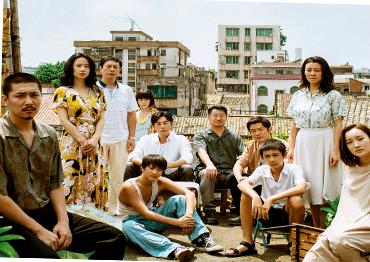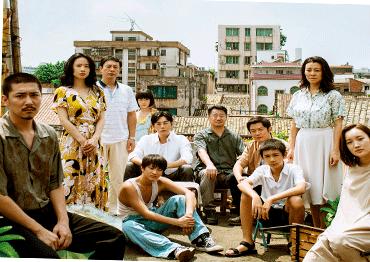After graduating from Zhejiang University in 2008, Chen worked as a product manager at an internet company.
He began writing suspense fiction after reading the Japanese writer Keigo Higashino’s novel The Devotion of Suspect X (2005). “The book struck me so deeply. It surprised me that crime fiction could be written that way. A voice in me said that I could also write like that,” Chen told NewsChina.
In China, mystery and suspense, along with horror, fantasy and sci-fi, are relatively underdeveloped genres. Part of the reason is political, as literature was a tool of ideology rather than entertainment. Even though publishing restrictions loosened after reform and opening-up, there are few prominent suspense authors and titles. Only in the past decade has sci-fi taken off commercially in China, thanks to authors like Liu Cixin and his Three-Body Problem trilogy.
Not that China is without crime writers. As graduates of the National Police University of China, writers Lei Mi and Qin Ming have first-hand access to real criminal case files. Their stories follow the traditional whodunit pattern, often told from the perspective of police and are rich in realistic, bloody details. Other mystery authors, such as Cai Jun and Zhou Haohui, bridge fantasy and horror fiction with elements of the surreal and supernatural.
But very few were of the “social school” subgenre, a name coined by Japanese mystery fiction writer Seicho Matsumoto that emphasizes social realism, often set in ordinary situations within a wider context of social injustice.
Chen said his decision to write “social school” crime fiction was purely a rational one. “I wanted to fill that void,” Chen said.
In 2012, Chen published his first novel, High IQ Crime: The Deduction of the Prince of Logic. Originally serialized on bulletin board website Tianya under the title Murdering Officials, the book’s in-depth exploration of human nature and bold commentary on social issues caught the attention of publisher Zhang Xuesong, who called it “the true texture of flesh and blood” seldom found in other Chinese mystery novels.
Chen followed with his King of Deduction trilogy: The Untouched Crime (2013), The Bad Kids (2014) and The Long Night (2017), its commercial success cementing his reputation as one of China’s leading mystery fiction writers.
In 2017, The Untouched Crime was adapted into the web series Burning Ice, one of the most popular shows of that year. After the finale of The Bad Kids, another web series adapted from The Long Night will be released this year.
The following year, Chen moved back to his hometown, Ningbo in Zhejiang Province, where he leads a reclusive life. He often writes through the night and turns in around 6 am.
Chen spends most of his spare time watching movies of all kinds - except arthouse films. “A vulgar man, not a hipster,” reads his Douban page.
Chen told NewsChina his next project is a “hardcore” suspense story that addresses the lack of class mobility in contemporary China.
As for his childhood scars, Chen is facing them with calm. Though he still has no contact with his half-sister, he meets his father once or twice a year for a chat.
“I always have believed that life is a journey to improve yourself. For creatives, all the bitter memories and painful experiences endured eventually turn into precious treasures,” Chen said.

 Old Version
Old Version

